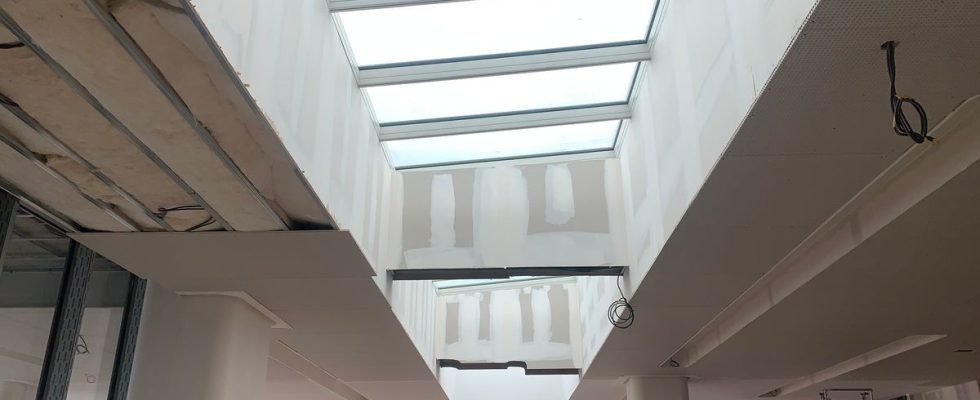From global warming to switching off public lighting at night or even a temperature in winter limited to 19 degrees in public buildings in the Strasbourg Eurometropolis, there was only one step. A small step for the people of Strasbourg but a big step for the finances of the two Alsatian communities, the city and its metropolis having thus avoided, thanks to a range of all-out measures, losing 4.3 million euros on its transport bill. energy over the past year. But still with a bill that amounts to 24 million euros.
A significant reduction in expenditure and a “very encouraging” assessment, even going beyond the objectives which were exceeded”, indicated Monday the executive of the city and the Eurometropolis of Strasbourg during a first assessment, presented on Monday after a year of application of the reinforced energy sobriety plan launched in September 2022. Losses avoided “which will make it possible, for example, to finance everyday projects”, indicated Syamak Agha Babaei, first deputy to the mayor of Strasbourg and vice-president of the Eurometropolis in charge of the budget and finances. “Spending less money on energy means being able to be more connected, in support of residents in the context of everyday public service,” the elected official further underlined.
Despite costs that continue to soar, these substantial savings also have “a positive effect on the planet,” underlines the environmentalist mayor of Strasbourg Jeanne Barseghian. This reduction in energy consumption (electricity, gas, district heating) still represents 14% savings over the period from September 2022 to May 2023 for the two communities, i.e. 4,000 tonnes of CO2 which do not have been issued. » More clearly, this is equivalent to a billion kilometers by train or 25,000 times around the Earth, image Jeanne Barseghian.
Mandatory sobriety
An energy sobriety strategy which is fully in line with “the Climate Plan which has set itself the objective of reducing energy consumption by 40% by 2030, including 30% achieved through renovation work and 10% through energy sobriety measures,” recalled the City. An economy that we owe to a set of measures. Temperatures set at 19 degrees in administrative buildings, 14 degrees in gymnasiums and 21 degrees in early childhood premises, but also the deployment of heat networks, mainly powered by renewable energies, all monitored by the implementation place of 800 probes and a whole adjustment device. Heating but also the reduction in the number of Christmas lights by 20% and the limitation of market opening times, or even the switching off of public lighting at night from 1 a.m. to 5 a.m.…
And to set an example, the Strasbourg Eurometropolis has tackled a real energy thorn in its side, the administrative center, a real energy sieve whose total renovation will be launched and will extend over six years. It must be said that this gigantic building dating from the 1970s is by far the most energy-intensive in the Eurometropolis’s real estate portfolio, accounting for 11% of energy consumption. These titanic works, for a projected amount of 95 million euros excluding tax, aim to significantly reduce electricity consumption. “minus 21% and at least 75% for heating consumption,” assured the president of the Eurométropole Pia Imbs.
For now, Strasbourg will pull out all the stops to renovate the 33 sites it owns with a budget of 90 million euros, particularly for the energy renovation of school groups, and is preparing to deliver in 2024, the brand new and ecological extension of the public reception of the administrative center. A new step towards the coveted sobriety…

